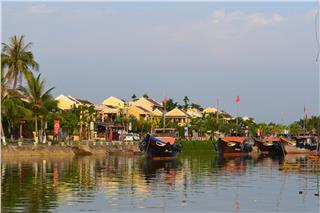Craig Forrest shared about documentary filmmaking in Vietnam
Fri, 19 Sep 2014 . Last updated Thu, 25 Jun 2015 08:49
-
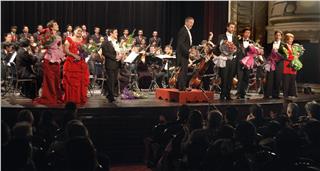 Graham Sutcliffe and Vietnamese classical music 3722 viewed
Graham Sutcliffe and Vietnamese classical music 3722 viewed -
 American medical engineer in Vietnam 3660 viewed
American medical engineer in Vietnam 3660 viewed -
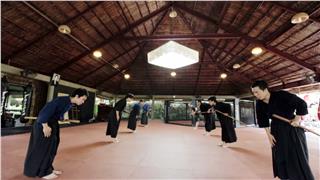 Traditional Japanese martial art in Vietnam 3558 viewed
Traditional Japanese martial art in Vietnam 3558 viewed -
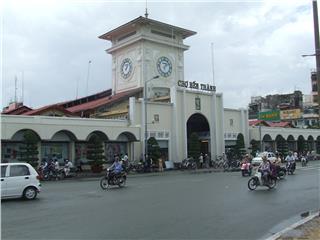 Expats in Ho Chi Minh City 3480 viewed
Expats in Ho Chi Minh City 3480 viewed -
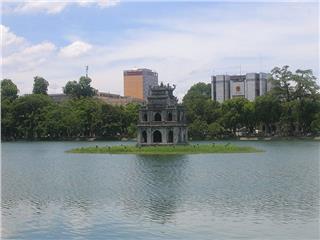 Hanoi in the eyes of a foreign expat 3476 viewed
Hanoi in the eyes of a foreign expat 3476 viewed -
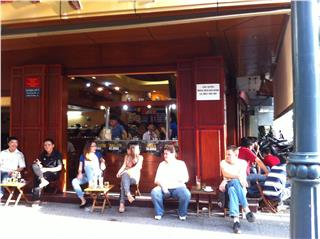 Experience the life of an expat in Ho Chi Minh City 3381 viewed
Experience the life of an expat in Ho Chi Minh City 3381 viewed -
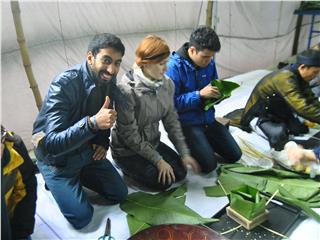 Celebrate traditional Vietnamese Tet 3330 viewed
Celebrate traditional Vietnamese Tet 3330 viewed -
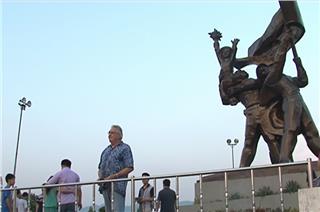 Life of Nev Tickner in Dien Bien Phu 3102 viewed
Life of Nev Tickner in Dien Bien Phu 3102 viewed -
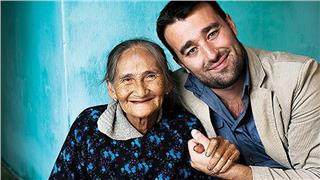 Vietnam through photos of Rehahn Croquevielle 3088 viewed
Vietnam through photos of Rehahn Croquevielle 3088 viewed
Documentary filmmaking still remains a playground of passion and creativity of filmmakers to convey the universal human value to all. Coming to Vietnam this time, Craig Forrest shared his knowledge and experience for Vietnamese documentary filmmakers.
Craig David Forrest is here in Vietnam for series of training in how to make documentary film. With 40 years of experience in this field, he will share more about the beauty and power of documentary film as well as the current trends in the industry not only in the US but also in the world. Craig D. Forrest is best-known as director, producer and cameramen. His stories and documentaries often evoke the difficult and dangerous oversea location while exploring unique subjects from heretic to silent film. Various projects and shows that he produced or directed won numerous awards, most noticeably is CINE Gold Eagle. He has worked professionally in network channels for CBS “The Amazing Race”, ABC “In Concert”, Discovery channel “World of Wonder”, Travel channel “World’s Best” among others. Also, he held doctor fine art degree in filmmaking from Kingdom Seminary and a master degree in film study in Chapman University.
This is the second time he comes to Vietnam. About 14, 15 years ago, he went to Ho Chi Minh City and the Mekong Delta area for a video project. This time he comes to Vietnam to teach how to make documentary film, his favorite subject. A documentary is a non-fiction. Short film and drama always have the scripts with the fictional characters involved actors or actresses through dialogue. But documentaries are non-fictions, usually it is people that tell their own stories through interview or narration, so it has a lot of fun. Good documentary film is an interesting story told by interesting people in an interesting location and in an interesting way. “Interesting” means the ability to draw attention of audiences that makes them have to watch film. Foreign documentaries make very good use of interviews. Their storytelling style engages audiences via different ways. In Vietnam, there is often too much narration.
The capital city of Hanoi is the first stop of Craig David Forrest in Vietnam After three days of lecture, Craig Forrest and his students are taking to the street to make film. The most important thing that Vietnamese documentary filmmakers have learned is visual storytelling and how to limit the number of words used. Another thing is you need to pick a great story. Not only new comers but also a veteran documentary filmmaker with 30 years of experience like Nghiem Nhan also learns something from the course. The first thing that Craig Forrest taught them about documentary filmmaking is to make sure that the images are beautiful and neat. He encouraged them to look out of the box and gave them confidence. He opened up a window for them to look out into the world.
During the five days of course, Craig worked with nearly 30 students from different departments at the Vietnam television. He talked them basic documentary filmmaking giving them tips on 8 mistakes that documentary filmmakers make, seven useful habits of filmmakers as well as the tactics of camera work, lighting and sound. When teaching in developing nations like Vietnam and in most countries in general where he taught during last 7 years, one of the most important aspects is the opening up the imagine and creativity to see the new documentary styles. With documentary film, you need to be exposed the opening up creativity and your experience to all kinds of film documentary.
The difficulty that Vietnamese documentary filmmakers make is a time to live side by side the subject, to truly understand them. So when they have a quota of films to meet, they often are not able to explore every single detail. There are details that they need to wait a while to capture. They can’t just show up anytime and expect them to be right there. Sometimes they are conflicted between duty to make serious documentaries and their hobby of making documentaries about entertainment, arts and gender issues. There are too many responsibilities for one single person. They might be producer, director, presenter, editor, reporter and production assistant at the same time. The production crew a 10 to 15-minute documentary is often small, even though the program is broadcast often. Technology can help to produce better images and sounds. Modern technology is not yet widely applied in documentary filmmaking. The traditional method still prevails.
After learning about the challenges of documentary filmmakers in Vietnam, Craig Forrest has given some advices for them. Firstly, they need to have habit of taking note. Whenever, they think up an ideal or see a story, they need to write down. Because of writing down, they will not forget it. One idea may lead to another ideal. Besides, it is need to observe around. Look around and see what is going on around them. Through reading the papers, watching films, updating the news and grasping the situation, they can find some ideals. Hopefully, the knowledge that Craig Forrest shared about documentary filmmaking when coming to Vietnam this time will help documentary filmmaking in Vietnam more and more developed.
Source: VTV4 – VTV.vn

